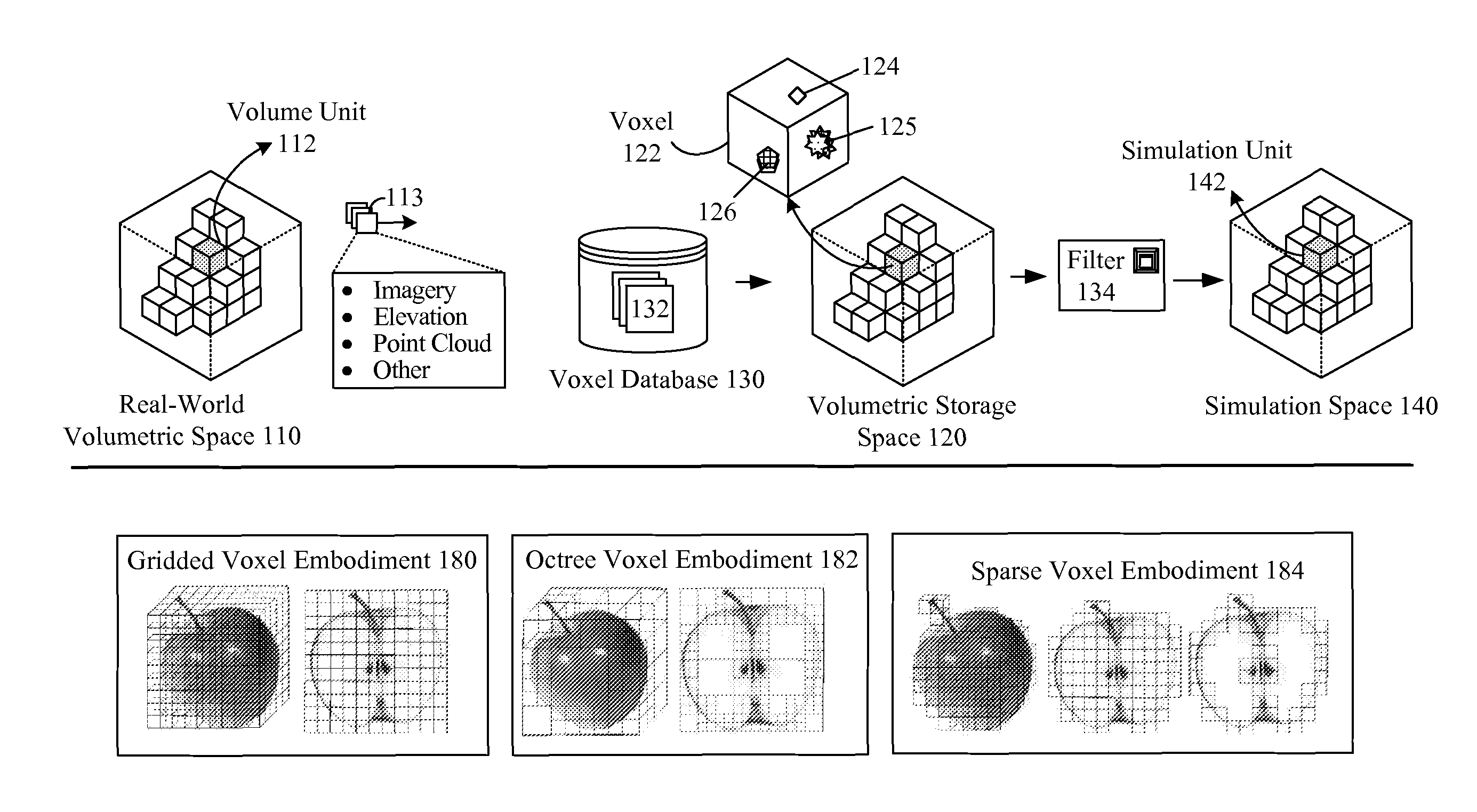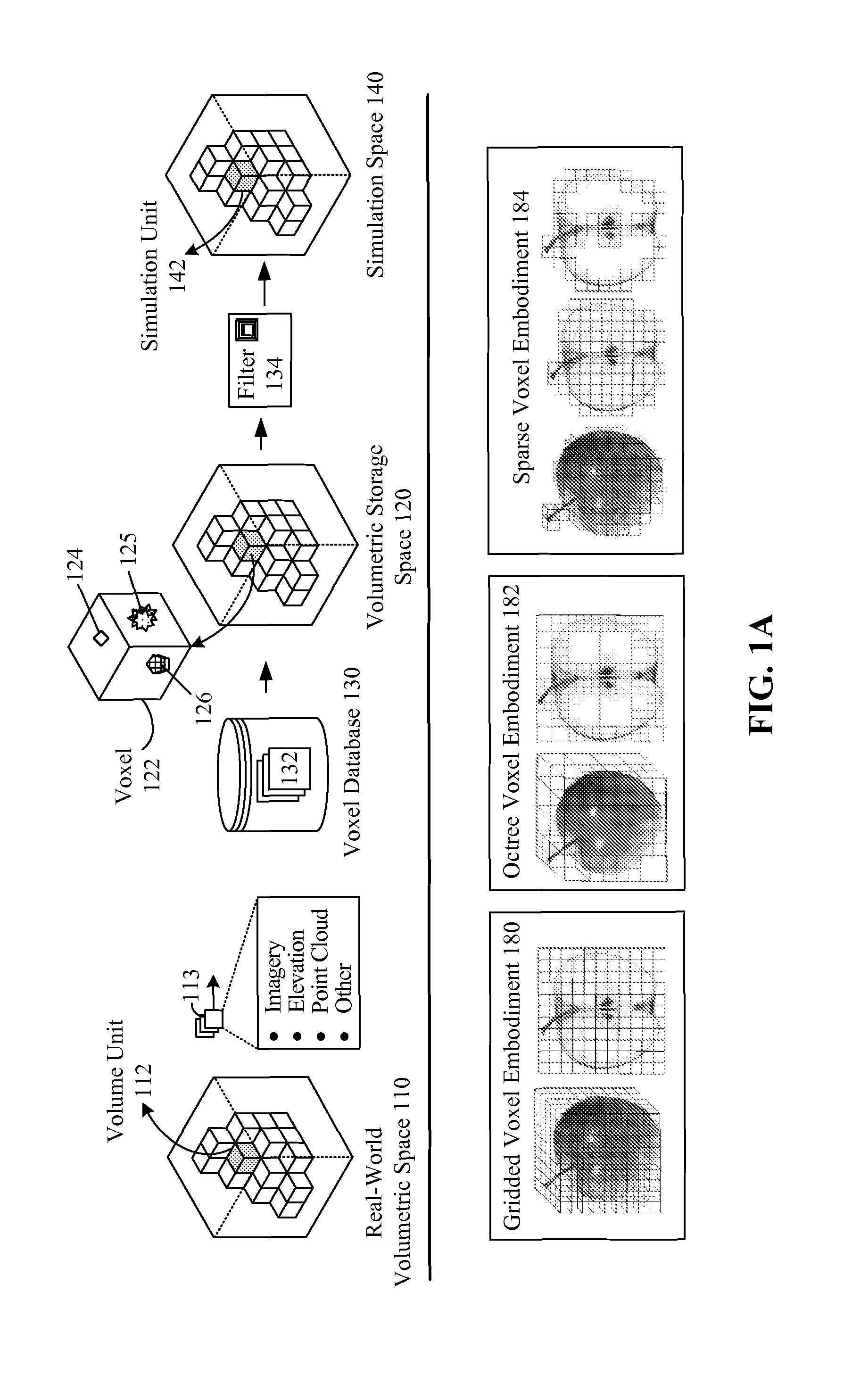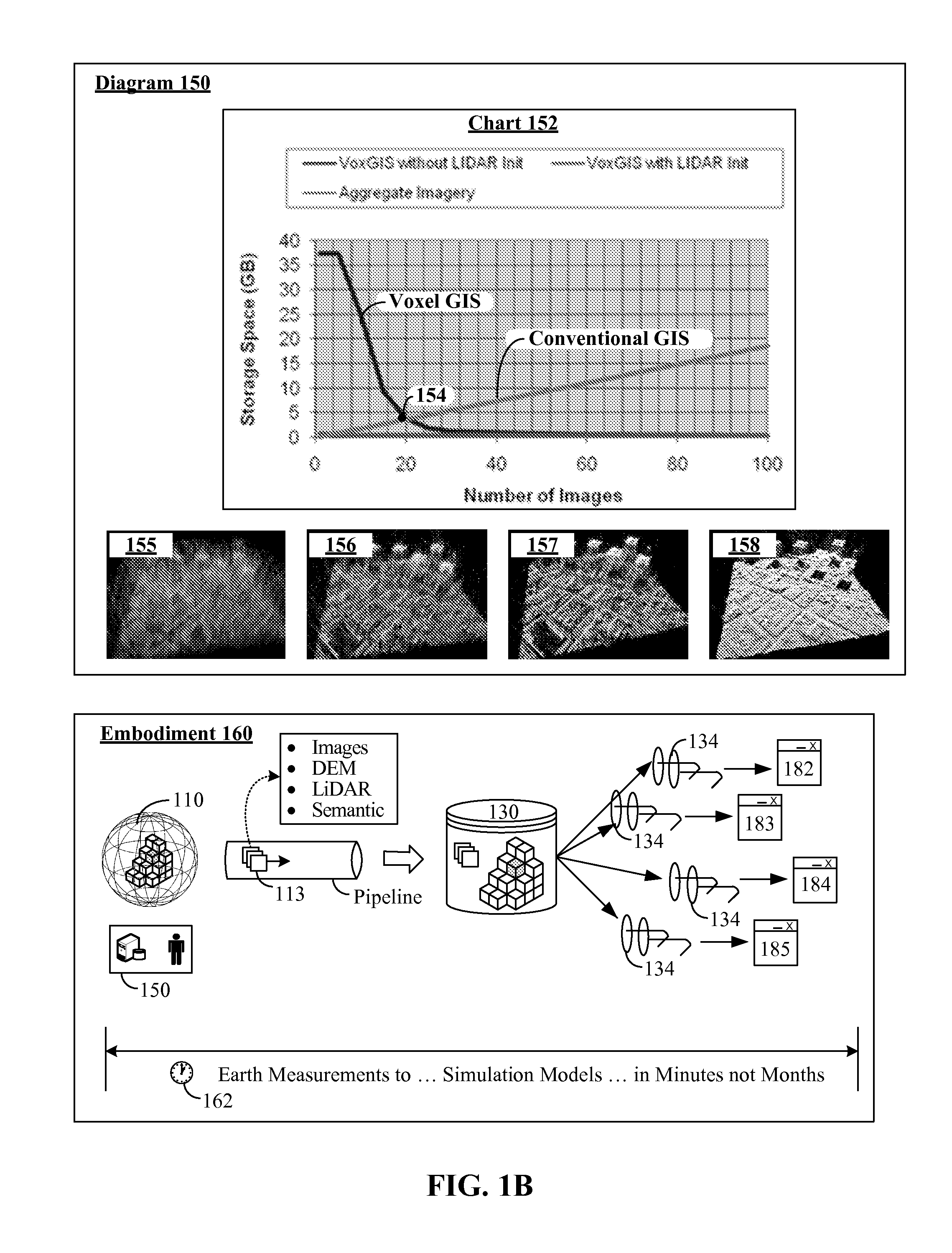Voxel approach to terrain repositories for modeling and simulation
a repository and terrain technology, applied in the field of simulation systems, three-dimensional user interfaces, and terrain repositories, can solve the problems of largely unimproved storage methodologies and techniques for recording and managing geospatial information repositories, and the representation of terrain database used for terrain reasoning and information storage has remained relatively stagnant, so as to achieve the effect of drastically improving the spatial correlation of database stored conten
- Summary
- Abstract
- Description
- Claims
- Application Information
AI Technical Summary
Benefits of technology
Problems solved by technology
Method used
Image
Examples
embodiment 130
[0035]In one embodiment, the common database 130 product can be a probabilistic one in which uncertainty is handled. In one embodiment, a query engine for the database 130 can include multiple different components for producing different queries (e.g., mission rehearsal query, training query, analysis query, etc.), which handle uncertainty in different manners for different types of consumers. It should be appreciated that embodiment 130 can be largely automated, which permits the process 162 from taking measurements, to producing simulation models to occur within minutes (under thirty minutes or under twenty four hours, for example) and not months, as is the case with conventional information gathering and modeling processes. Thus, in one embodiment, a real world (110) situation can be directly mapped to simulation space 140, in a rapid enough manner to permit users to construct scenarios as part of a mission planning and / or mission rehearsal phase of an engagement. The real world ...
embodiment 160
[0062]Unlike many computing systems, system 400 can be a security sensitive one where data classifications are highly important. That is, information acquired from data sources 150, stored in voxel GIS 440, and used to drive simulation devices 210 can include unclassified, secret, top secret (including compartmentalizations) information. Classification components 404, 415, 424 can exist, which implement comprehensive and conservative rules to automatically classify information into appropriate classifications. Additionally, sanitizers (e.g., sanitizer 426) can be used in system 400 to downgrade semantic content (e.g., from secret to unclassified, for example) of conveyed data elements to ensure that classification based restrictions are not violated. Moreover, different network 460 channels and information handling standards can be imposed based on classification level of the information being conveyed. A further complication is that aggregating and / or analyzing data from different ...
PUM
 Login to View More
Login to View More Abstract
Description
Claims
Application Information
 Login to View More
Login to View More - R&D
- Intellectual Property
- Life Sciences
- Materials
- Tech Scout
- Unparalleled Data Quality
- Higher Quality Content
- 60% Fewer Hallucinations
Browse by: Latest US Patents, China's latest patents, Technical Efficacy Thesaurus, Application Domain, Technology Topic, Popular Technical Reports.
© 2025 PatSnap. All rights reserved.Legal|Privacy policy|Modern Slavery Act Transparency Statement|Sitemap|About US| Contact US: help@patsnap.com



